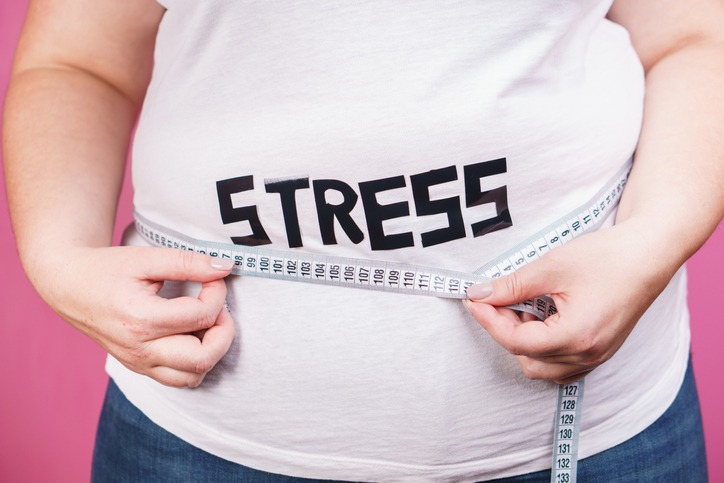Stress and Weight Gain: Why Is It So Hard to Lose Weight?
Discover the link between stress and weight gain. Hormones, cortisol, sugar cravings... learn why losing weight is so difficult during times of stress and how to remedy it.
HEALTHBLOG-LIST
12/13/20242 min read


Ah, stress! This daily scourge impacts not only our mental well-being, but also our physical health. Are you trying to lose weight, but stress seems to sabotage all your efforts? You are not alone! In this article, we will decipher the mechanisms that link stress and weight gain, and give you the keys to finally regain balance and achieve your slimming goals.
Stress, a Real Enemy to Your Figure
Cortisol, the Stress and Weight Gain Hormone
When stress sets in, our body releases cortisol, a hormone essential to our survival. The problem? A high and chronic cortisol level promotes fat storage, especially in the belly. This phenomenon is accentuated by:
Increased appetite: Cortisol stimulates the production of ghrelin, the hunger hormone, and decreases that of leptin, the satiety hormone. Result: we are hungrier and feel less full.
Cravings for sugar and fat: In stressful situations, our brain seeks comfort in foods high in sugar and fat, which activate the reward circuit.
Sleep disruption: Stress disrupts sleep, and lack of sleep increases cortisol production and promotes weight gain.
Stress, a Vicious Cycle for Weight Loss
Stress can also indirectly impact weight loss:
Lack of motivation and energy: Stress depletes our mental and physical resources, which can demotivate us from exercising or cooking healthy meals.
Emotional eating: We turn to food to manage our emotions (anxiety, sadness, frustration), which can lead to compulsive eating and weight gain.
How to Break the Vicious Cycle of Stress and Weight Gain?
Taming Stress to Better Manage Your Weight
Relaxation techniques: Meditation, yoga, deep breathing... all techniques that help reduce stress and better manage your emotions.
Physical activity: Physical exercise is an excellent way to fight stress and burn calories.
Quality sleep: Get enough sleep and adopt good sleep hygiene to regulate your cortisol.
Balanced diet: Favor a diet rich in fruits, vegetables, protein and fiber to stabilize your blood sugar and avoid cravings.
Adopting a Holistic Approach
Consult a healthcare professional: A doctor, nutritionist or psychologist can help you identify the causes of your stress and implement personalized solutions.
Listen to your body: Learn to recognize the signals of hunger and satiety, and eat mindfully.
Cultivate positivity: Surround yourself with positive people and practice gratitude to improve your overall well-being.
FAQ
Q: Do all types of stress make you fat?
A: No, acute stress (short-term) does not have the same impact on weight as chronic stress (long-term).
Q: What are the best foods to manage stress?
A: Foods rich in magnesium (dark chocolate, almonds), omega-3s (fatty fish) and vitamin B (green vegetables) are known for their beneficial effects on stress.
Conclusion
Stress is an important factor to consider when you want to lose weight. By learning to manage stress and adopt a healthy lifestyle, you can break this vicious cycle and achieve your weight loss goals. Remember that patience and self-kindness are essential in this process.
